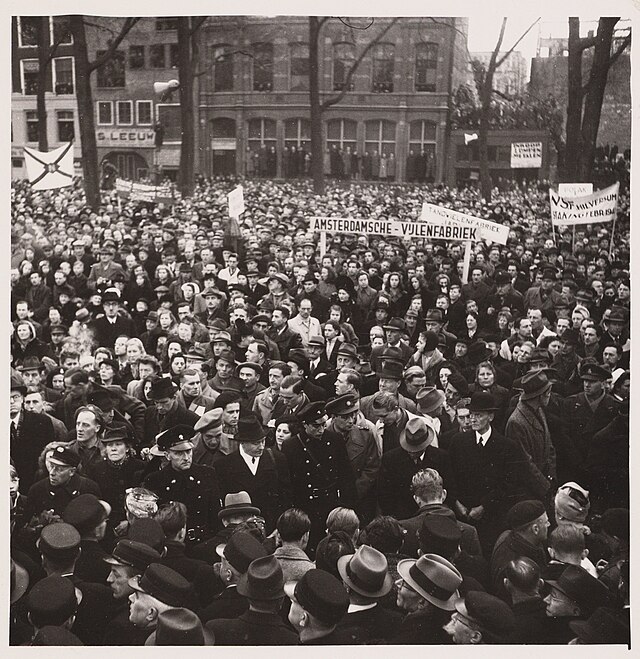The film Cabaret was released on 13th February, 1972 – 50 years ago today. The musical play on which it was based had its premiere on November 20th 1966, and much had happened in the intervening six and a bit years.
Great Britain had seen laws legalising abortion and decriminalising homosexuality (both passed in 1967). In 1968, France saw the largest general strike in world history, in a mass movement that inspired similar movements throughout the world. After Martin Luther King was assassinated in 1968, US Americans took to the streets. This dovetailed with growing opposition to the Vietnam war; and movements such as the Gay Liberation Front. After a police attack on the Stonewall Inn, LGBT+ people in New York rioted. In 1973 the Roe vs Wade verdict legalised abortion in the USA.
What has all this to do with a film about the dying days of Weimar Germany? Firstly Cabaret is about much more than just this. As David Hall notes, Cabaret was “one of the first mainstream films that celebrated homosexuality, just as openly as it did heterosexuality”. Brett Campbell adds that “few remember that the original movie version of Cabaret briefly earned an X rating for its implications of bisexuality, abortion, anti-Semitism, and other then-verboten fruits.”
Although it was “just” a musical, Cabaret was a film of its time. It was not just affected by political events outside. It was also intended to be an intervention in these debates.
The Plot
For anyone who hasn’t seen it yet – you really should! But here’s a quick summary. Brian Roberts arrives in Berlin in 1931, looking for work as an English teacher. While looking for lodgings, he meets Sally Bowles, a vivacious but childish singer at the local cabaret. Sally is currently slumming it, her estranged father is “practically an ambassador”. Her real ambition is to be a famous actress.
Brian moves in opposite, and uses Sally’s room as a classroom. His pupils include Natalia Landauer, the repressed daughter of a rich Jewish family, and Fritz, an opportunistic social climber. Fritz tries to woo Natalia for her money. Two problems arise – first, Fritz finds that he’s falling in love with Natalia, second she becomes the victim of Nazi attacks. Fritz then reveals that he is, himself, Jewish, but he registered as Christian when he moved to Berlin.
Sally tries it on with Brian, but he rebuffs her, explaining that he has had three sexual encounters with women, all of them disastrous. But Sally persists and they become a couple. When Sally meets Max, a passing aristocrat, in the laundrette, they become a triple. Max promises to take them to Africa, but suddenly leaves town, leaving a cursory note and some money. Sally discovers she’s pregnant, but she doesn’t know by whom. She has an abortion off screen.
Meanwhile, the Nazis are slowly gaining a foothold. We see the corpses of dead Communists on the street. Max thinks that “Germany” can use the Nazis to get rid of the Communists. When a member of the Hitler Youth gets up in a Biergarten and sings Tomorrow Belongs to Me, a terrifying prophecy of the barbarism ahead, everyone (with one exception) joins in. Brian asks Max if he’s still so sure of himself. Brian later confronts two Nazis and is hospitalized as a result.
The romantic and political developments are interspersed with scenes from the Cabaret, conducted by a creepy MC. At first, the MC invites the audience to “leave your troubles outside”. The cabaret contains some songs, some political satire, but also some female mud wrestling. In an early scene, a Nazi collecting money is ushered out of the cabaret, which leads the manager to be beaten up. By the end of the scene, most of the audience is dressed in Nazi uniforms.
Whose Cabaret?
Cabaret, more than most films, presents a story based on many different perspectives. The opening titles list a series of different sources. This film from the 1970s is based on a musical from the 1960s, which is in turn based on a play from the 1950s – ‘I am a Camera’. The source for all of these was Christopher Isherwood’s Berlin Stories – a collection of 2 novellas published in 1935 and 1939 – based on Isherwood’s experiences in early-1930s Berlin.
There is a temporal distancing, in which we are privileged to information that the characters lack. As they blithely carry on, we are aware of impending Fascism, war and concentration camps. Similarly, people who watch the film now – in times of the AfD and Charlottesville – have a different perspective to the original 1972 audience. As song writer John Kander remarked: “Every time there is a major production of Cabaret, there’s this horrible feeling of: why is it so pertinent now?”.
The story is also mediated through different characters with a different understanding of what is happening. Ranging from the ambitiously unpolitical Sally to the more socially aware Brian; from the capitalist Maximilian to Natalia who personally suffers from the growth of Nazism. These characters have different, often conflicting, visions of what is happening in Germany. The ambiguity of the film draws on this clash of perceptions.
I think the biggest problem with some interpretations of Cabaret is that they insist on just one point of view. They try and say that Cabaret is saying “X”, rather than understanding that it tells conflicting, and even contradictory, stories. It is more helpful to ask: “Who is trying to say what?” “Why are they saying this?” and “To what extent does their understanding cohere with what is really going on?”
Who Is the MC?
The dissonance between what is said and what is meant, is clearest in the figure of the MC. He has been variously described as a “diabolical presence”, “the all-knowing force behind the action”; as a “counter-aesthetic to the fascist aesthetic”; but also as as someone whose stage performances are “racist and fascist”; as a man with “no conscience, no rules – not unlike Hitler”; and even as “a representation of Hitler himself”.
The implication of some reviews is that the MC is presiding over a club which is propagating Nazi propaganda. I think that this interpretation misunderstands the role of cabaret in Weimar Berlin. In the ‘Kit Kat Klub’, the performers, and especially the MC, do take political stands. They mock Nazi marches, and the MC smears mud on his upper lip to impersonate Hitler. His mocking grin shows that he believes that this is something to be ridiculed.
The Cabaret goes further than just criticizing the Nazis. At first glance, the song “Money, Money” (better known as “ Money makes the world go round”) appears to be a paean to capitalism. But the line “Who’s that knocking on the door? Hunger!”, shows a critical awareness of the reality of poverty in post-Weimar Germany. You might argue that the performers are playing to their audience, but they are not neutral bystanders.
Ultimately, the Cabaret – and the MC – offer the sort of ridicule that we have come to experience from Private Eye and Black Mirror. It is the nihilistic view that basically everything is shit. This is a world view that can very quickly adapt to new political realities. In Marxist terms, the cabaret is part of society’s superstructure, not its’ base. What happens in the cabaret depends on developments in society outside, not the other way round.
The MC is not directly responsible for the increased number of Nazis coming to Cabaret. It is not that he is a fascist, but he is perfectly capable of accommodating to fascism. As the Old Yorker argues, “jokes made at the expense of Hitler’s moustache and stormtrooper goose-stepping are adjusted to accommodate the increasing number of swastika armbands in the audience.”
“If you could See Her”
Let’s now look at the most controversial song in the show. If you could see her, is a languid waltz in which the MC pleads his love for a woman … who is dressed as a gorilla. At the end of the song, after singing “If you could see her through my eyes”, he stops, stares at the audience, and says in a stage whisper “she wouldn’t look Jewish at all.”
The song was in the original stage musical, but provoked complaints, largely from conservative Jewish organisations. A rabbi protested that “the graves of six million Jews were pleading for us not to do this,” [Keith Garebian, ‘The Great Broadway Musicals: The Making of Cabaret’; p.111]. One reviewer called it “Nazi agitprop theater”. In the stage play, the line was briefly replaced by the line “she isn’t a meeskite at all.” but it was restored for the film.
Straight off, it might be worth saying a couple of things. The song was written by two Jewish men, John Kander and Fred Ebb, and sung by a third Jewish man, Joel Grey. Even after the line was withdrawn, Grey later remarked that “I used to sneak it in all the time. I’d say. ‘Oh, I forgot’”. Grey considered the line to be ”anti-anti-Semitic”.
I think we can easily dismiss the charge that the song was intended to incite antisemitism. There are, however, two lesser claims. One claims that although the line was not intended to incite antisemitism, this is, nonetheless, what it did. Another claims that although the author is not antisemitic – the character is – that the line shows that “the MC is a bad person and he’s devolving into being a Nazi”.
I don’t think the claims hold up. First, we need to discuss the dramatic context. The song comes directly after we are introduced to the dilemma of Fritz. That is Fritz wooed Natalia because of her wealth, but has fallen in love with her. More specifically, it comes directly after Nazis have painted Juden in front of Natalia’s house and killed her dog.
The song does not ridicule Fritz’s love for Natalie but highlights the madness of a society that suggests that such a love was somehow immoral. The final line is delivered as an aside, outside the normal song. The MC winks at the audience. He and they, are in on the joke that Nazi racism is something to be laughed at.
This discussion is important to understand what Cabaret is really about. One motivation to write this article was silly online arguments with people who claim that Cabaret is not really an anti-Nazi play; or even that it simply enables Nazis. I think this a great calumny. The film belongs to us and is something of which we should be proud.
What’s it all ‘really’ about?
Cabaret is above all about the horrors of Nazism. I remember going to an open air screening a couple of years ago with a friend, a Spanish socialist, who was seeing the film for the first time. After the final scene, when we see that the Nazis have taken over the cabaret audience, she was clearly both moved and shocked.
But the film does not ask us to accept the inevitable, or to move into passive inaction. Quite the reverse. The main message is a line from the play which actually doesn’t appear in the film: “If you’re not against all this, you’re for it—or you might as well be.” It is a call for action.
At the same time, there is an implied criticism of certain forms of resistance. To explain what I mean, permit me a little anecdote. In 1961, Peter Cook launched his club “The Establishment” which was about as anti-establishment a venue as Harold Macmillian’s conservative London had seen till then. At the launch Cook said that it was modelled on “those wonderful Berlin cabarets which did so much to stop the rise of Hitler and prevent the outbreak of the Second World War”.
The joke was that despite any media hype, satire is actually a very weak method of fighting establishment repression. Weimar Berlin may have had the reputation of being the hotbed of radical art, but all this was swept away when confronted with real Nazis with real guns and real gas chambers. The point is not that cabarets were reactionary. It is that, after workers’ resistance was crushed, they were ineffective.
But Cabaret does not counterpose rising fascism with an impotent cultural response. It confronts us with the question: “What would you do?” The question is not what Brian, or Sally, or anyone else in the film should have done. It is how we would respond to a situation that is still chillingly relevant.
I am considering writing an extended version of this article, elaborating on some subjects brought up here, and bringing up some new ones. For this reason, I’d welcome any suggestions, criticisms or other feedback. Please mail me at philbutland@yahoo.com.




